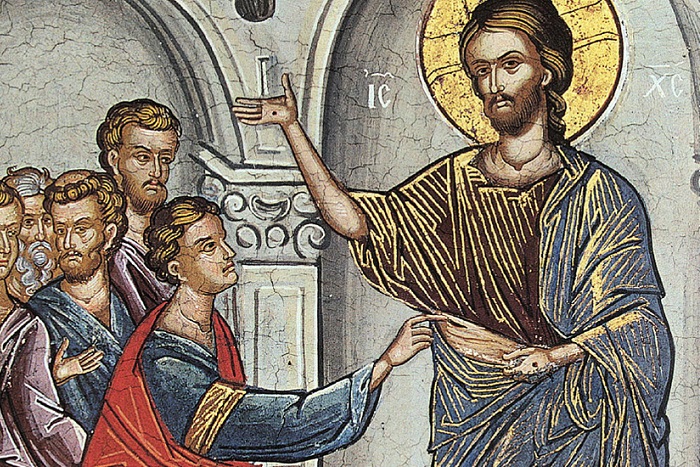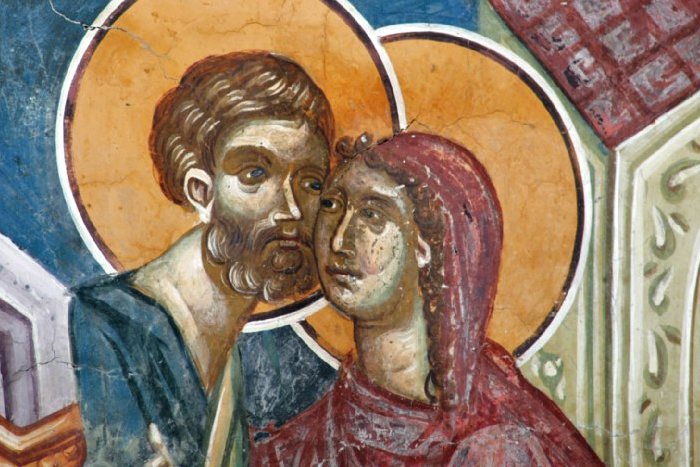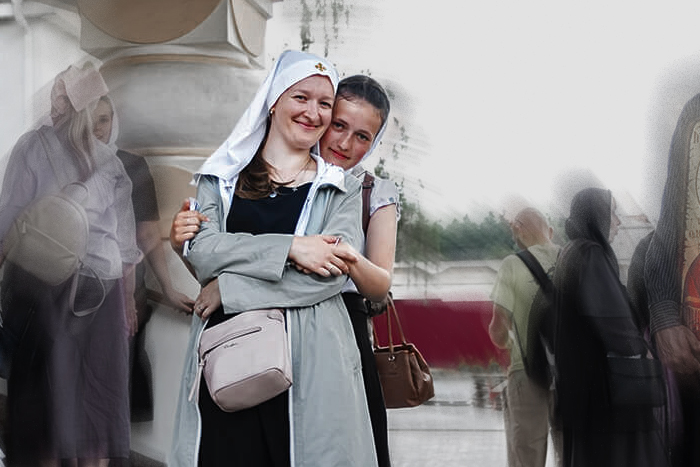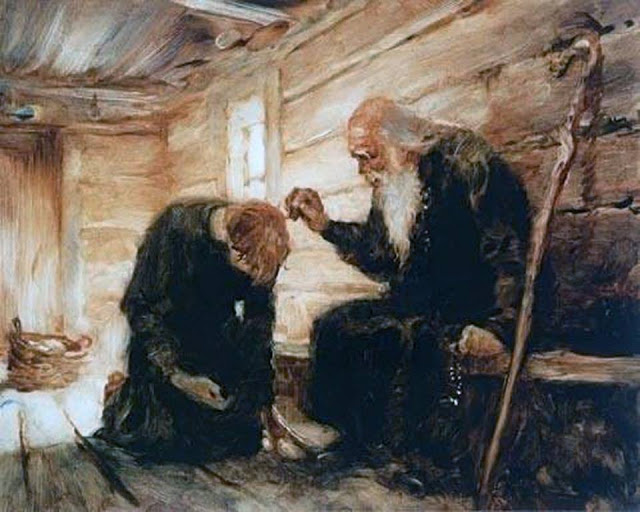
Sergey Averintsev wrote a wonderful poem about Apostle Thomas.
He addresses Christ on behalf of the Apostle, asking him to show his wounds. The Apostle says that he is aware of the fact that “blessed are those who have not seen and yet have believed” but he really needs it:
I’ve seen what I’ve seen.
I know what I’ve touched:
A spear pierces one’s heart
And rips it open forever.
Apostle Thomas is in doubt. In order to defeat that doubt, he needs to touch Jesus’s wounds rather than talk himself into believing. He has a different manner of perception. His faith is no less strong than that of those who can believe without seeing the facts.
All that I’ll be able to recall
In the weakness of my last torment:
Open wounds on his palms.
And the immortal pierced Heart
His experience is conscious.
I’ve learned a very important thing lately: God leads us to a woke and meaningful life, in some way or another. Even if we for some reason don’t notice any changes, we’re wrong. Changes do occur but at an incremental pace.
What is a woke life? It means that you have to realize what you do and be responsible for it.
Here is a story from my own life. I had a friend. He was very dear to me. That friend of mine betrayed me. Generally, betrayal is a very sensitive issue, and we can spend a lot of time mulling over it – but not now, okay?
It took me a while to get over it. I wanted to forgive that person. I would pray for that person every day for almost a year. I could justify that person’s actions and come to terms with them rationally but my heart was still aching. I even left the country for a couple of months. However, you can’t flee from yourself. There wasn’t a day when I wouldn’t think about that situation, trying to talk my heart into forgiving and forgetting it. While I was abroad, I wrote a letter to that person but I wanted to leave everything as it was, so that it would cease to be so painful over time. Then I returned home.
It was the Christmas Night Liturgy. As a rule, there are a lot of people who come to the Convent on that night. It takes several Chalices to give communion to everyone. The crowd pushed me into the center of the nave, and it turned out that I was standing shoulder to shoulder with that person – very close. It dawned on me that there was one thing going on in my heart at that moment, while the eternity was another thing. When seen in the light of the eternity, things that matter to us right now lose their importance and weight. I wouldn’t be able to leave things as they were. First of all, it was me who needed to forgive.
That’s true of many other issues. Sooner or later, we get to the point at which we have to reconsider our lives, review our relationships with our kin, forgive those who have wronged us even if it happened years ago, forgive our parents and accept them as they are, thank our parents and teachers, and ask those whom we wronged to forgive us. We have to be responsible for our actions. Our souls know what they are guilty of.
Doubt is one of the driving forces toward a conscious and meaningful life. Many of us are afraid of doubts because they are thought to be a sign of lack of faith. Alternatively, people may be afraid that they won’t find the answers to their doubts and it will make them suffer. Is it the case?
Metropolitan Anthony (Bloom) of Sourozh said in one of his sermons that each person has a verifiable and pure experience but at the same time our experience is limited and imperfect, and we do not have full knowledge of God. That is why when we encounter doubts, they don’t mean there’s something wrong with God. They mean that our concept of God is flawed, and that we have outgrown that concept and advanced to the next level of knowledge.
It seems to me that being gullible and taking everything at face value is really dangerous. It is a bad sign when you square the circle too easily. Your worldview may appear clear and accurate but it will be limited and dead nevertheless. We are limited by our personal experience and our knowledge. We attempt to push the life in all its diversity into the limits that we’ve constructed. What’s worse is that we dare limit God in a futile attempt to make him easy to understand and convenient to deal with.
I heard an expression “I think because I don’t know.” It seems to me that it is very important to not know – because it’s very interesting to think.



